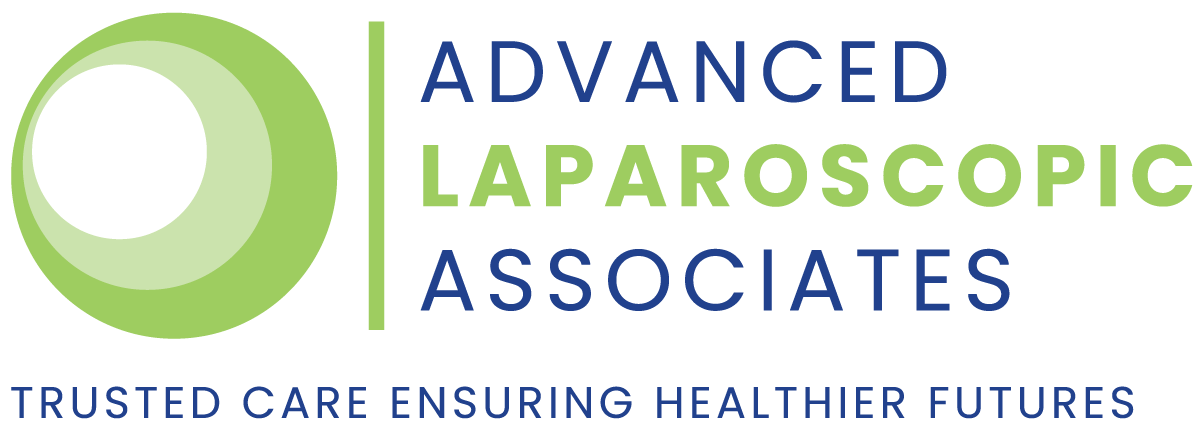If you have been told that you have a condition of your gallbladder, such as an infection, inflammation, or a buildup of gallstones, you may benefit from the surgical removal of your gallbladder. This type of surgery is known as a cholecystectomy. At Advanced Laparoscopic Associates (ALA), our surgical experts specialize in cholecystectomy surgeries. Here is what you need to know about this procedure, including the process and what it can treat.

Cholecystectomy
What Is Cholecystectomy?
A cholecystectomy is a surgical procedure that removes your gallbladder. This is a common surgery, and people can function well without their gallbladder because it is not an essential organ.
What Is the Gallbladder?
The gallbladder is a small sac-like organ that is attached to your liver and your small intestine by thin tubes called ducts. The gallbladder stores a chemical called bile, which helps your body break down and digest the fats that you eat. Typically, this process goes unnoticed. However, if the flow of bile is blocked—causing inflammation in your gallbladder or bile back up into the liver—it can cause pain and even yellowing of your skin or eyes.
Why Is a Cholecystectomy Performed?
A cholecystectomy can be performed for many reasons, including:
- A gallbladder blockage
- Gallbladder inflammation or infection
- Cancer of the gallbladder
- Stones of the gallbladder or bile ducts
- Pancreatitis (pancreatic inflammation)
How Is a Cholecystectomy Performed?
At ALA, surgeons aim to perform the least invasive, most effective surgeries possible. A cholecystectomy can be performed in three manners: laparoscopic, robotic and open.
In a laparoscopic cholecystectomy, a surgeon makes a few small incisions in the abdomen and inflates it with air to visualize the gallbladder with a small camera. Small tools are then used to remove the gallbladder.
In robotic cholecystectomies, surgeons follow a similar process as laparoscopic removal. However, instead of using their hands to manipulate tools at the bedside, they use robotic tools and manipulate the gallbladder while sitting at a separate console a few feet away from the operating table. This robotic cholecystectomy method can allow for even more precision compared to a traditional laparoscopic method.
In open cholecystectomy, a surgeon makes a larger, single incision in your abdomen and removes your gallbladder. This open approach is typically only necessary if a less-invasive robotic or laparoscopic surgery can’t be performed.
Cholecystectomy Complications
Luckily, the risks of a cholecystectomy surgery are low. Like any surgery, there is a small risk of bleeding, infection, or intolerance of general anesthesia. There can also be damage to the structures around the gallbladder, such as the bile duct, intestine or nearby blood vessels. There is also a small risk of a bile leak.
Cholecystectomy Recovery
Your recovery from a cholecystectomy will depend on the type of procedure that was performed. If you had a laparoscopic or robotic cholecystectomy, your recovery time would generally be shorter than if you had an open procedure. Your surgeon will monitor you to make sure that your incision wounds are healing well, your pain is controlled, and your bowels are working properly. After your surgery, you will be able to gradually increase your diet, advancing from fluids to solid foods. It may be several weeks before you are fully recovered.
How to Get Treatment
A cholecystectomy can be a helpful treatment for people struggling with symptoms stemming from a problem with their gallbladder. Surgeons who specialize in cholecystectomies also perform a variety of other surgeries, including those that can relieve symptoms such as acid reflux, or GERD. If you have been experiencing symptoms of gallbladder disease or GERD, contact ALA today.
For additional information, all prospective patients are invited to attend a free educational seminar.
Seminars are a great source of information about the procedure you are considering, and they allow you to meet the surgeons as well as ask any questions you may have. You may also have the opportunity to meet some post-operative patients.
Call (201) 646-1121 today and schedule your consultation with one of our surgeons!
Or use our online Request an Appointment form.
